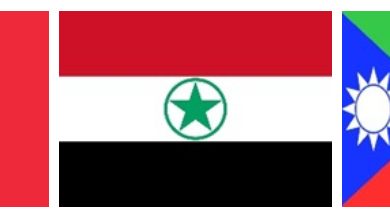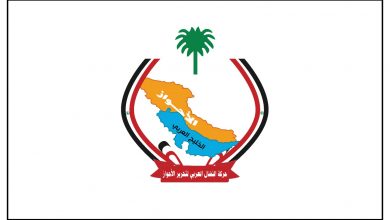Leaked Iranian regime document reveals ethnic cleansing “security project” to eradicate Ahwazi Arabs

Ahwazna
A leaked copy of a report issued by the Iranian regime’s ‘Supreme Council for National Security’ provides new and compelling evidence of the regime’s policy of ethnic cleansing of Iran’s Ahwazi Arab population, part of the Iranian leadership’s ongoing efforts to permanently change the region’s demographic composition.
The leaked “Comprehensive Security Project for Khuzestan” plan proposes a number of strategies with the objective of crushing the Ahwazi freedom movement and thwarting already severely proscribed activism by the Arab peoples of Ahwaz. Although the region was forcibly renamed Khuzestan province by the then-Iranian rulers in 1936, ten years after Iran’s annexation of the region, the indigenous Ahwazi Arab people still know it as A-Ahwaz or ‘Arabistan’.
Perhaps the most important and dangerous of the items incorporated in this project is the planned construction of "new settlements and cities" to resettle massive numbers of Persian and other predominantly non-Arab immigrants from other areas of Iran in the region as a means of completely changing its demographic composition in favor of non-Arab peoples in order to eradicate Ahwazi identity and culture.
According to the leaked report, the ‘security project’ was approved during a meeting of the higher council tasked by the SCNS with its implementation on 27 April 2014, with the meeting chaired by Abdolreza Rahmani Fazli, the Iranian Interior Minister under Hassan Rouhani’s government.
Human rights organisations in Ahwaz have confirmed that the regime’s demographic change strategy is already being implemented via widespread land confiscation, seizure of properties, demolition of homes and population transfer, adding that whatever regime officials may claim, the evidence on the ground of these policies being brutally enforced is clear and unambiguous.
The measures proposed in the leaked report include “the repression of political movements” and “the continuation of the policy of demographic change by the displacement of Arabs from their home areas,” along with “bringing more non-Persians and Arabs from other [Iranian] provinces for resettlement in the province of Khuzestan.”
In the report, a copy of which was received by Ahwazna, the author also – unusually for the regime – acknowledges “the existence of discrimination, oppression and marginalization of Arabs in Khuzestan” which led to “nationwide protest” in recent years before proposing further draconian security measures in an effort to prevent similar future protests. Unsurprisingly, none of the regime’s proposals include according the Ahwazi people the freedom and basic human rights which activists and protesters are calling for.
The report identifies five categories of challenges facing the Iranian regime in the Ahwaz region – “political, security, cultural, social and economic” – before proposing that these be resolved through focusing on quelling the demands of the Arab peoples by “dissolving political mobility and demands in the crucible of Iranian pro-regime parties” through indoctrination of the region’s populace in the “concepts of the Islamic Republic” and inculcating “obedience to the velayat e-faqih system”.
The higher council’s supervisory committee tasked with supervising the implementation of the project, is staffed by senior regime officials including the First Assistant to the Iranian President, Yitzhak Jihangere, as well as the Interior Minister, the Minister of Intelligence and his security and intelligence aides, and the commander of the regime’s regional Internal Security Forces. Another committee member is the chairman of the regime’s regional TV and radio media commission, while a number of members are not identified by name.
The SCNS was tasked by the regime leadership in 2014 with forming five sub-committees to implement the ‘security project’ over a five-year period up to 2019. The primary focus of the project, according to the leaked document, is the enactment of policies to eliminate regional threats and challenges to the regime, with the committees presenting biannual updates on their progress to SCNS Secretary-General Ali Shamkhani, who has overall charge of the project.
The Iranian regime’s plan to change the demographic composition of Ahwaz was first exposed in 2005 in another leaked document, which was signed by Mohammad Ali Abtahi, the policy director of former Iranian President Mohammad Khatami’s presidential office. Despite Abtahi’s denials of the document’s authenticity – a standard regime ploy – these revelations led to widespread protests across Ahwaz, dubbed the ‘April Al-Ahwaz Uprising’, with dozens of unarmed Ahwazi demonstrators killed by regime police and security forces in the leadership’s brutal crackdown.
The unnamed author of the report also emphasizes the crucial need for the regime to “reduce the migration of Persians from the region and ensure that they are settled there safely and securely, self-sufficient in all levels,” adding that there should be “increased emigration to the province of Khuzestan [al Ahwaz] from other Iranian regions in order to ensure long-term demographic changes at the lowest cost.”
The report further recommends even more intense monitoring of human rights activism and diplomatic activity by Ahwazi Arab activists both domestically and overseas, expressing concern that they are attempting to raise awareness of their plight among the international community in order to gain international assistance and protection and to gain wider acknowledgement and recognition for the legitimacy of their cause.
The report author issued instructions for the immediate suppression of any calls for secession or federalism in Ahwaz, emphasizing the need for the regime to limit the political activities of Ahwazi Arabs to those approved within the framework of the Islamic Republic and its institutions.
Another recommendation by the report’s author was the establishment of Arabic-language media channels which could disseminate negative propaganda about Ahwazi activism or “nationalism”, as well as countering “extremist groups” and “Wahhabism” in the region, with the regime also concerned at the number of young Ahwazi Arabs converting from Shi’ism to Sunnism despite facing severe penalties for doing so.
The report further recommends bringing Iraqi Shiite militias, as well as members of Lebanon’s Hezbollah, both of whom are currently fighting in Syria, to the region to help in the implementation of the ‘security project’. It suggests that this could be achieved by the Tehran-backed foreign militias holding seminars and giving talks to young Ahwazis to persuade them of the superiority of the Shi’ite doctrines as a means of dissuading them from supporting Ahwazi national movements domestically and overseas.
On the financing of the project, the report controversially recommends allocating a budget consisting of funds from regional oil sales, with over 90 percent of Iran’s oil and gas resources located in the Ahwaz region. The SCNS also recommends allocating a proportion of the profits from the state petrochemical firms operating in the regime’s Shatt al-Arab ‘free zone’, known as the Arvand Free Zone.
This proposal is likely to incite further anger amongst Ahwazis who are denied any profit from the sale of their resources by the regime, with the majority living in Third World levels of poverty despite the massive profits from the oil and gas fields.
Ahwazi activists have described the new report as further irrefutable evidence of the regime’s policy of ethnically cleansing Arabs in Iran through mass displacement as a way of eradicating their presence in this region, calling on international humans right and legal bodies to adopt an unambiguously critical position and strongly condemn this policy.
We urge all humanitarian and human rights organisations to adopt a clear stance in condemnation of the Iranian regime and its officials who are responsible for implementing policies which can only be described as criminal in every sense against Ahwazi Arabs, who have been left with nothing more to lose, having been stripped of all rights since the occupation and annexation of their homeland over 90 years ago. We also call on the UN Special Rapporteur for Human Rights in Iran, Ahmed Shaheed to take urgent action to end the regime’s crimes against Arabs in Ahwaz and across the region and to force the regime to desist from these plainly racist policies in accordance with international laws and treaties.


